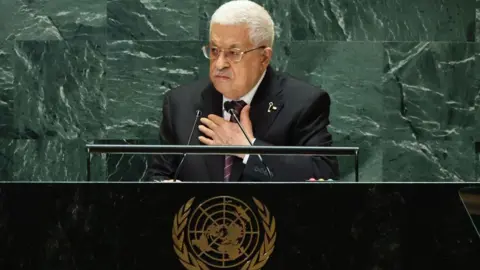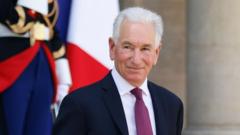Throughout various administrations, relations with UNESCO have fluctuated. Initially, the U.S. ceased funding for the organization in 2011 over its admission of Palestine as a full member, a controversy that led to significant budgetary reductions within the organization. The Trump administration intensified these tensions by formally withdrawing in 2017, citing perceived anti-Israel bias within UNESCO. During his presidency, Trump made clear his discontent with what he termed "globalist agendas," and this culminated in an executive order aimed at reviewing U.S. commitments to international institutions, including UNESCO.
The organization, known for its role in designating World Heritage sites and promoting educational initiatives, has faced growing scrutiny from U.S. officials who argue that it emphasizes divisive social agendas, particularly concerning its Sustainable Development Goals. Critics of UNESCO also assert that rival powers, notably China, have increasingly filled vacuums left by U.S. withdrawal.
The upcoming withdrawal will take effect at the end of 2026, continuing a pattern of America’s engagement with international organizations that finds itself at the mercy of shifting political landscapes and prevailing sentiments regarding globalism.
This step, alongside other international relations decisions, underscores a broader trend that has emerged under the Trump administration: a preference for unilateral approaches to policy and governance.
The U.S. has rapidly cycled through its positions on UNESCO — from withdrawal to rejoining under the Biden administration, and now back to opting out again. It remains to be seen how this shift will influence the landscape of international cultural cooperation in the years ahead.
The organization, known for its role in designating World Heritage sites and promoting educational initiatives, has faced growing scrutiny from U.S. officials who argue that it emphasizes divisive social agendas, particularly concerning its Sustainable Development Goals. Critics of UNESCO also assert that rival powers, notably China, have increasingly filled vacuums left by U.S. withdrawal.
The upcoming withdrawal will take effect at the end of 2026, continuing a pattern of America’s engagement with international organizations that finds itself at the mercy of shifting political landscapes and prevailing sentiments regarding globalism.
This step, alongside other international relations decisions, underscores a broader trend that has emerged under the Trump administration: a preference for unilateral approaches to policy and governance.
The U.S. has rapidly cycled through its positions on UNESCO — from withdrawal to rejoining under the Biden administration, and now back to opting out again. It remains to be seen how this shift will influence the landscape of international cultural cooperation in the years ahead.





















